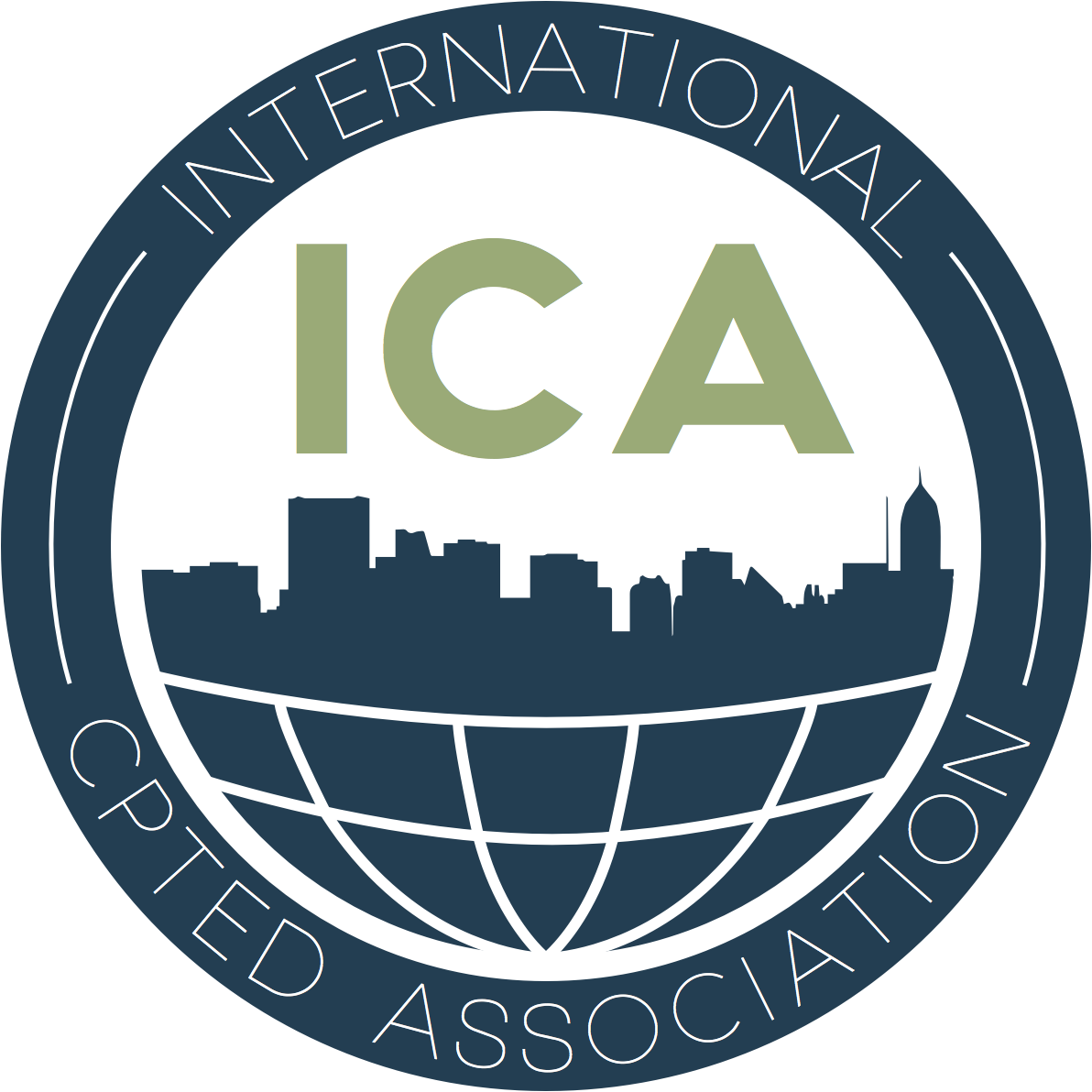FREE WEBINAR!

Register HERE for free
ICA WEBINAR
CPTED IN SCHOOLS
Thursday, 1 August 2024
16:00 GMT
10:00 MDT (e.g. Calgary)
12:00 CLST (e.g. Santiago)
12:00 EDT (e.g. New York)
18:00 CEST (e.g. Amsterdam)
18:00 SAST (e.g. Pretoria)
21:30 IST (e.g. New Delhi)
02:00 (+1) AEST (e.g. Sydney)
04:00 (+1) NZST (e.g. Auckland)
Background information
You are invited to join a discussion on the application of Crime Prevention through Environmental Design (CPTED) principles in schools at a webinar hosted by the International CPTED Association (ICA).
The ICA has developed a CPTED guide for schools describing an integrative approach that considers the physical, social and psycho-emotional environments. This is referred to as the “Comprehensive Approach”. The discussions will focus on this approach and the opportunities to apply it in settings beyond the school environment. The aim is to promote the notion that CPTED could be enhanced through interventions that focus on aspects related to, for instance, physical and mental health, self-realization etc.
Topics
Topics to be discussed include the following:
-
The nature of the physical, social and psycho-emotional environments in relation to CPTED.
-
The “Comprehensive Approach” as described in the “CPTED in schools” guide.
-
Applying the “Comprehensive Approach” in various settings – practical examples.
***
We call for your inputs and views on the above and encourage you to mention if you have something to share on the topic. You may share your thoughts in the Questions & Comments section when you register. Alternatively, you can also email questions/comments to us or post them in the comment box during the live webinar session.
The webinar will be presented in English.
We look forward to connecting with you!
Who should attend?
Architects, urban planners, designers, CPTED professionals, education specialists, school administrators, safety and crime prevention specialists, public officials, safety consultants, police officers, academics, students, researchers, policy makers, urban development experts, criminologists, sociologists, psychologist, health care professional, decision-makers etc.
***
Panelists
ELISABETH MILLER
ICA Director
Elisabeth Miller, MCIP, is a municipal urban planner with a specialty in urban safety and SafeGrowth®. Currently she is the Neighborhood Safety Coordinator responsible for implementing SafeGrowth® training and working with communities to identify issues, carry out risk assessments and safety audits, public engagement, and the implementation of safety recommendations. She also chairs the City of Saskatoon's CPTED Review Committee which is a partnership of various civic departments.
Elisabeth is also responsible for organizing and co-teaching SafeGrowth® & CPTED courses to ensure that civic staff is appropriately trained. Over 200 people have been trained since 2000.
Elisabeth joined the ICA Board of Directors in 2008 and was appointed as a Secretary in 2019.
Mail: secretary@cpted.net
RENE BERNDT
ICA Director
Rene Berndt, AIA LEED AP, Associate Principal at Mahlum Architects, has 25 years of architectural experience and extensive knowledge of learning environments tailored to the specific social-emotional needs of each age group. Rene is an active member of the “Association for Learning Environments (A4LE) SW Washington / Oregon – USA Chapter and the American Institute of Architects (AIA) – Portland Chapter. He served in the past on the board of Directors of the AIA Monterey Bay Chapter and the A4LE SW Washington / Oregon Chapter.
Rene is very interested in the specific needs of the learner at each developmental stage and how these needs differ between early childcare, elementary, middle or high school students. In the last decade he has become concerned that strategies with the goal of providing safety in schools have instead increased anxiety, fear and conditions that could foster bullying, vandalism and social isolation. To counter this trend, Rene is promoting the CPTED Defensible Space tenets and aims to provide learning environments that foster positive social relationships.
Rene enjoys sharing his work and research at conferences and workshops, both locally and internationally. His work has been featured in numerous design publications, including Architectural Record, and has been recognized with diverse regional, national and international design awards.
Rene was elected as Director on the International CPTED Association Board of Directors in 2019
Mail: renee.berndt@cpted.net
CARLOS GUTIÉRREZ (Moderator)
ICA Director
Carlos is an architect, psychotherapist, specialist in complementary medicine and Bioneuroemoción specialist. He obtained his degree in architecture from the University of Chile.
He has participated in the promotion of the CPTED methodology in Latin America since its inception in the region. He is also a co-author of the first CPTED manual in Latin America.
Over the past years Carlos has lived and worked in South, Central and North America where he familiarized himself very closely with local cultural aspects and social challenges especially those relating to violence and its prevention. In Central America, especially in Honduras, he has effectively promoted and implemented application of bioclimatic design strategies applicable to school infrastructure. Under this work he also developed guidelines for application of CPTED methodology in the planning of school spaces. His professional knowledge and interest in various self-development topics has allowed him to integrate psychosocial approaches to CPTED methodology.
He has extensive experience in community development, promoting citizen engagement and integration, and strengthening community and institutional participation. He is currently a Senior Technical Advisor (Consortium of three German companies) for the CONVIVIR Program in Honduras executed by the government of this country with funds from Bank KfW of Germany.
Carlos was elected as Director on the International CPTED Association Board of Directors in 2017.
Mail: carlos.gutierrez@cpted.net
Disclaimer
The views expressed in this webinar are those of the
guest speakers and do not necessarily reflect the position of the ICA.
